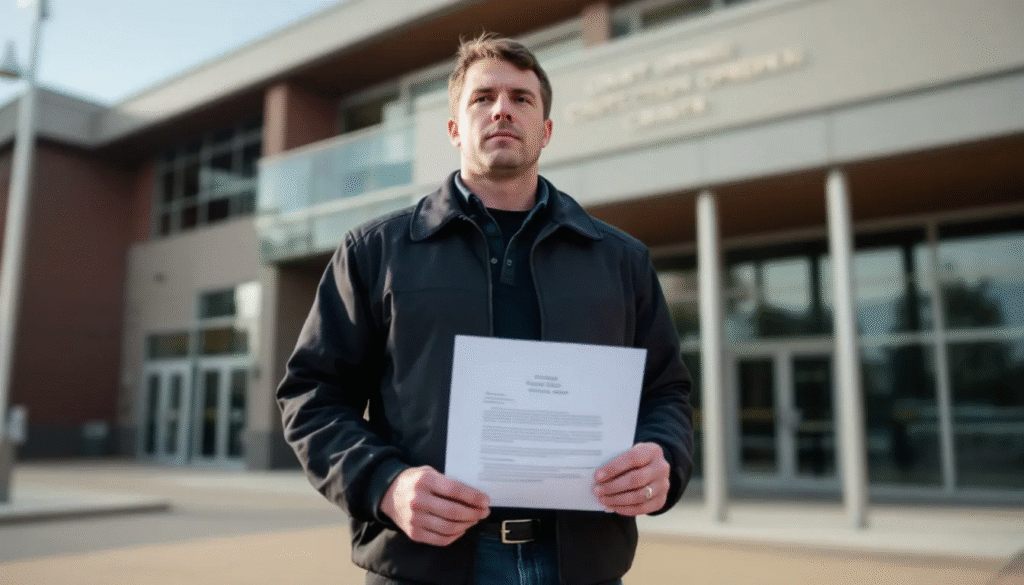Colorado Springs Protection Order Attorney
Civil Protection Orders vs. Criminal MPOs Explaned

Served with a civil protection order or facing a mandatory protection order (MPO) in a criminal case? One misstep can lead to arrest, new charges, and firearm consequences. Get local defense – fast.
Attorney Mike Moran offers free consultations from our downtown office, 220 E. Costilla St., Colorado Springs | (719) 447‑1923.
Civil Protection Orders (CPOs) — “Restraining Orders”
Colorado courts can issue Emergency (EPO), Temporary (TPO), and Permanent (PPO) civil protection orders to prevent domestic abuse, stalking, sexual violence, threats/assaults, or emotional abuse of at‑risk adults. Courts set TPO hearings as quickly as possible, and the permanent‑order hearing must be set within 14 days after a TPO enters (with extensions if service isn’t completed). Service is required, and standardized forms are used statewide.
If the alleged conduct includes an act of domestic violence involving force or threats, the court must order firearm non‑possession and relinquishment and set a compliance hearing; there are strict deadlines (24–48 hours) and approved transfer/storage methods.
Where to file/appear (local): Civil protection order petitions in El Paso County are heard at the El Paso County Judicial Building, 270 S. Tejon St., Colorado Springs. The court posts local filing windows for same‑day hearings.
Helpful forms & how‑to: JDF 400 “How to Obtain a Civil Protection Order,” plus JDF 402 (verified complaint), JDF 401 (incident checklist), JDF 404 (children), and JDF 442 (registration info).
get help now
Request a free consultation
Practice Areas
Mandatory Protection Orders (MPOs) in Criminal Cases
In every Colorado criminal case, the court creates an MPO at the first appearance and it remains in effect until final disposition. It restrains harassment, intimidation or tampering with victims/witnesses—and it can be modified by the court. In DV, stalking, or unlawful sexual behavior cases, the MPO typically includes firearm relinquishment and a compliance hearing.
Municipal vs. State charges (local): If your summons directs you to 224 E. Kiowa St., you’re in Colorado Springs Municipal Court; otherwise, state cases run through El Paso County Combined Courts, 270 S. Tejon St..
Penalties for Violating a Protection Order
A knowing violation of a protection order (civil or criminal MPO) is a crime: generally a class 2 misdemeanor, but it becomes a class 1 misdemeanor in specified situations (e.g., prior violation, an MPO under §18‑1‑1001, or DV/stalking basis). After Colorado’s misdemeanor‑reform bill (SB21‑271), M2s are punishable by up to 120 days in jail; M1s up to 364 days.
Under both the civil and criminal frameworks, possessing or attempting to purchase a firearm in violation of the order is itself a violation that can trigger arrest and prosecution.
How Attorney Mike Moran Defends Protection Order Cases
Fast triage on contact risk. We explain MPO/CPO terms and map safe communication channels immediately so you don’t unintentionally violate the order. (Courts treat “indirect” contact seriously.)
Venue & charge strategy. We tailor approach based on whether your matter is in Municipal Court (Kiowa St.) or State Court (Tejon St.), who prosecutes it, and what local filing windows apply.
Evidence & service challenges. We scrutinize service, timing, and whether the order’s scope matches the allegations and statute.
Firearms compliance guidance. We help you lawfully relinquish or transfer firearms and document compliance to avoid a separate violation.
Modification & contested hearings. Where appropriate, we move to modify or narrow orders (e.g., carve‑outs for parenting‑time exchanges, workplace access) and litigate at permanent‑order hearings.
What to Expect in Colorado Springs Protection Order Case
Read the order carefully. Do not call/text/DM the protected person. Follow distance, address, and third‑party contact restrictions strictly.
Calendar your dates. TPO → PPO hearing within 14 days, unless extended for service; MPOs run through the life of the criminal case unless modified/dismissed.
Gather records. Save messages, call logs, social media, location data, Ring/Nest footage, and witness names.
Firearms? Act within 24–48 hours (civil) or the court’s deadline (criminal MPO). Document transfer/storage with the court’s required affidavit/receipts.
Court locations (local):
El Paso County Judicial Building: 270 S. Tejon St., Colorado Springs.
Colorado Springs Municipal Court: 224 E. Kiowa St., Colorado Springs.
Why Choose Attorney Mike Moran
Decades in Colorado courts and former municipal court judge (City of Victor, 1995–1998)—a perspective that helps anticipate how judges and prosecutors assess protection‑order allegations.
Thousands of Coloradans defended against protection order charges and free consultations from our centrally located office near the El Paso County courts.
Protection Order FAQs
Is a civil protection order the same as a restraining order?
Yes—Colorado uses “civil protection order,” but many people say “restraining order.” Courts can issue EPOs, TPOs, and PPOs under Title 13.
How soon is the hearing after a TPO?
The court sets the permanent‑order hearing within 14 days of issuing a TPO (extensions apply if service isn’t complete).
What if there’s also a criminal case?
Expect an MPO at your first appearance that stays in effect until the criminal case ends or the court modifies it; DV/stalking cases often include firearm relinquishment and a compliance hearing.
What are the penalties for violating an order?
Typically a class 2 misdemeanor; in certain circumstances (e.g., prior violation, DV/stalking basis, or MPO), it’s a class 1 misdemeanor. Sentencing ranges come from SB21‑271.
Where do I file in Colorado Springs?
Civil protection orders are heard at 270 S. Tejon St., with published filing windows for same‑day hearings.
